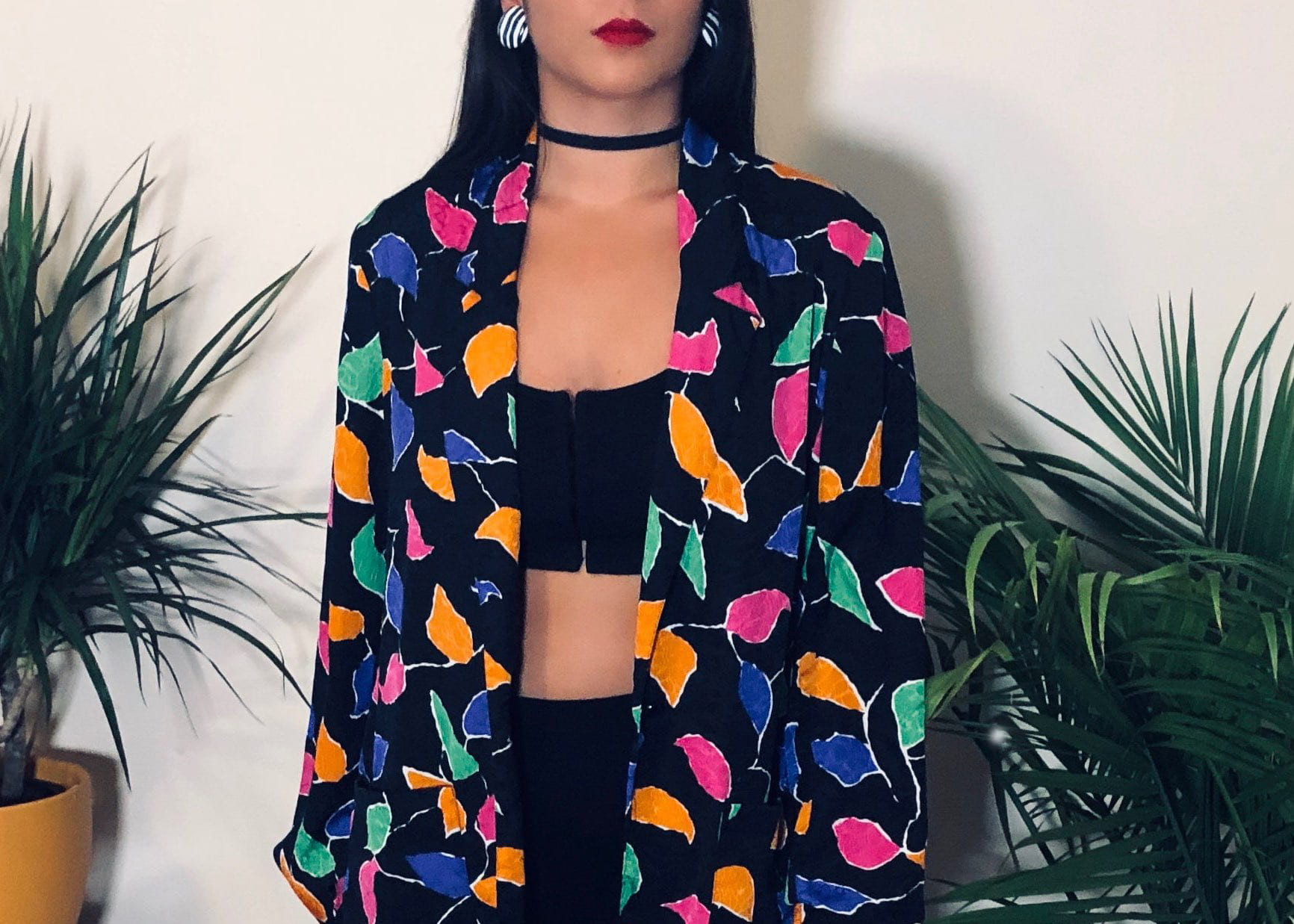
Alison Carter, owner of Public Hanger, opened up a storefront at 77 S. 18th street in Columbus on Feb. 12. Credit: Courtesy of Alison Carter
Hashtags encouraging the support of Black-owned businesses and sales via social media are allowing local shops to thrive during the pandemic.
Katya Philmore and Alison Carter are the owners of two of Columbus’ small, Black-owned vintage clothing boutiques. Over the last year, they said Black-owned businesses have seen increased interest and continued support from Columbus residents in both online and in-person shopping despite the ongoing pandemic.
Philmore is the owner and curator of Splendor Revival, a lifestyle brand that specializes in vintage and hand-sewn pieces, loungewear, statement pieces, gifts and accessories.
“The thing that really drives my business is just encouraging women to feel loved and beautiful by the things they bring into their homes or put on their bodies,” Philmore said. “It’s all about encouraging self-love, relaxation and rest, and kind of the everyday opulent.”
Splendor Revival first opened in a studio on West Rich Street five years ago, but the original space has been closed since the pandemic began. Instead, Philmore said she is operating from her website, Instagram account and her space at Little Light Collective, a vintage co-op owned by April Rhodes that opened in September 2020 in Clintonville, Ohio.
“I saw a huge influx of new followers and supporters from people wanting to support Black-owned business,” Philmore said. “It was almost a little overwhelming in the summertime because there was just a lot to emotionally process with everything happening.”
Public Hanger, owned by stylist Alison Carter, is an ’80s- and ’90s-themed vintage clothing boutique that is part of a Black-owned co-op. Carter said she recently opened up a storefront at 77 S. 18th St. on Feb. 12, but began the business online in 2012 after her love and abundance of vintage clothing led to the idea of sharing and styling it for others.
“I really appreciate vintage. I like stuff that’s been used but still has a story to tell,” Carter said. “I had so much stuff and it was going to waste, so it just kind of transitioned into selling stuff.”
Philmore said the pandemic made her shift gears in some interesting ways and explore things she wouldn’t have before. She launched a subscription box and a letter writing service, and she became more active on social media.
“I’ve been doing a lot more sales on Instagram, and those have definitely seen a large influx of people,” Philmore said. “As long as I’m doing consistent updates, I definitely see a large uptick in followers.”
Carter said she also saw an increased interest in Black-owned businesses last summer. She was able to do some socially distanced pop-up shops when “outdoor markets” opened up, but she ended up transitioning a lot of her sales to social media like Philmore.
“People were still willing to shop and were OK with shopping online, especially on Instagram,” Carter said. “Not even posting on my website, I would do story sales.”
Before the pandemic closed down businesses and caused limited in-person shopping, both Carter and Philmore said they were incredibly involved in the community with their businesses. Philmore said she was hosting workshops and events in the studio, as well as getting most of her business at pop-ups, street fairs and festivals.
The transition to primarily social media sales hasn’t been easy for either owner; Carter said there’s a lot of planning and preparation that goes into each story sale, and Philmore said she has been experiencing an increase in shipping delays for online orders.
“There’s a lot of platforms to cover,” Carter said. “You can’t just post on one thing because you could be missing a whole market.”
Despite the challenges, Philmore and Carter both said they felt the community has been fairly consistent in rallying around small Black-owned businesses from last year until now and only hope it continues.
“We don’t see a lot of Black-owned boutiques,” Carter said. “I think it’ll be interesting to see the diversity being appreciated and accepted now. I hope that it’s not a trend; I hope that it stays consistent.”


